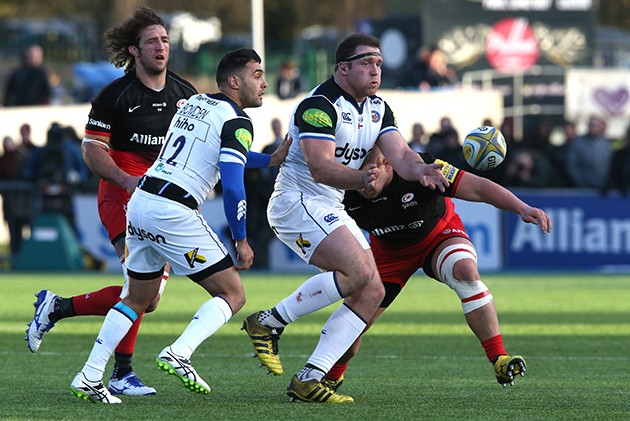Henry Thomas talks Bath, rugby heroes and accounting
Advertising Feature
How does Bath compare to Sale?
Farleigh House is a unique place, and a great location to come and train every day. The organisation as a whole is impressive, but there’s a real focus on developing each individual player which is a real draw for any professional athlete in a team sport. That said, Bath and Sale might be miles apart geographically, but both teams have a positive approach to the game and play some exciting rugby.
Have you always been a prop or did you start out in a different position?
I think I was always destined to be a prop. I tried my hand at No 8 in my early teens and even had a go at centre in sevens, but I’ve pretty much always been a prop.
Which players have you tried to model yourself on?
The big one for me is probably Carl Hayman, especially when I was a teenager. He was playing for the All Blacks and then moved to Newcastle. He was quite tall for a tighthead, but one of the best scrummagers in the game and he could run around the field a bit as well.

Prop idol: All Black Carl Hayman in action for Newcastle. Photo: Getty Images
Props seem to be coming through to the top level at a younger age now – what do you make of the development of front-rowers and how much difference does game time at a young age make?
Game time makes a huge difference. I wouldn’t be where I am today without getting a bit of a lucky break at Sale with a few guys unfortunately having to retire. You learn from all your experiences on the pitch and there is absolutely no substitute for game time in the front row, no matter what level it is. That’s probably why there are a few more coming through at a younger age nowadays: there’s more opportunities for valuable game time with the Aviva A League and options for loans or dual-registration.
Front-rowers rarely play a full 80 minutes these days. How does this affect your performance and recovery?
It’s such an attritional position that playing 80 minutes is tough – in fact, playing any minutes in the front row is tough. Usual time of play is 50-60 minutes but it still feels like you’ve played 80 when you come off. It takes a few days to recover from the collisions and impact on the body and that 10-15 minutes does make a difference. We’re lucky at this level in that we have the best medical and nutritional advice which helps us with preparation and recovery.
What’s the best advice you’ve ever received?
At a young age it’s important you don’t neglect your skills. Players in all positions should develop their core skills in order to be able to perform at any level.

Hard line: Henry Thomas on the charge in Bath colours. Photo: Getty Images
Who’s been your toughest opponent?
I’ve had a few tough ones over the years. When I was slightly younger I had some tough battles with Nick Wood at Gloucester. Over the last couple of seasons it’s been Marcos Ayerza, who’s one of the best looseheads in the game scrummaging-wise, so it’s always a hard battle against him.
What do you get up to away from rugby – hobbies, studies etc?
I spend a lot of time with the guys. We have a bit of a coffee club going in town. We play a lot of golf together, and one of my best mates is a golfer so I try and get out on the course whenever I can. I’m studying accounting as well, which is keeping me busy in my spare time.
Kinetica Sports is the official sports nutrition partner to Bath Rugby. For a chance to win a tickets to Bath v Saracens thanks to Kinetica, click here.
For the latest Rugby World subscription offers, click here.





